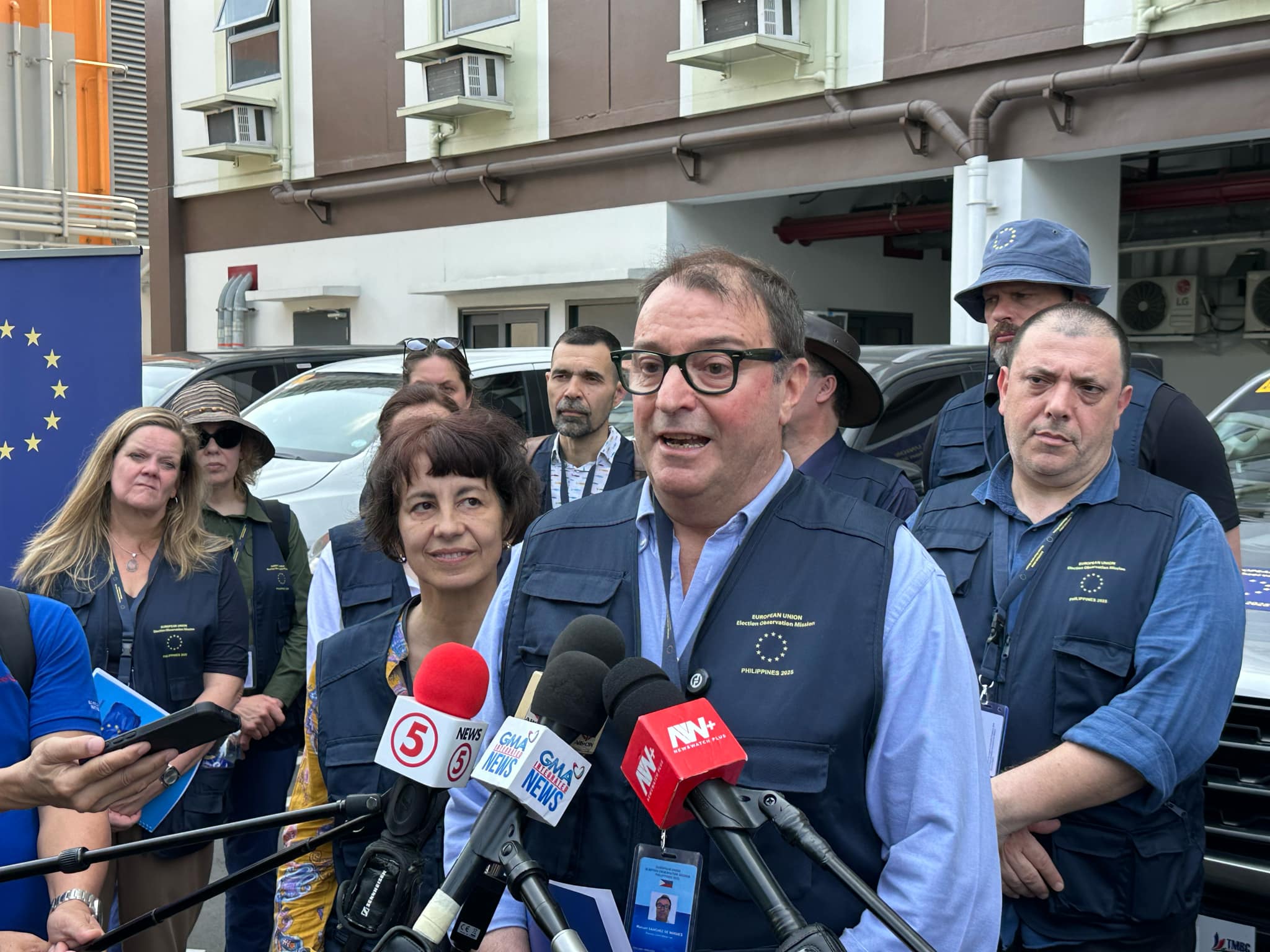The European Union (EU) for the first time has deployed 72 long-term election observers under its Election Observation Mission (EOM) to the Philippines to monitor and assess the process of the May 2025 midterm elections, EU-EOM Deputy Chief Observer Manuel Sanchez de Nogues said on Wednesday, April 16.
 EU-EOM Deputy Chief Observer Manuel Sanchez de Nogues speaks to the Philippine media at the sendoff ceremony for the 10 teams of election observers in Makati City on April 16, 2025. (Raymund Antonio/MANILA BULLETIN)
EU-EOM Deputy Chief Observer Manuel Sanchez de Nogues speaks to the Philippine media at the sendoff ceremony for the 10 teams of election observers in Makati City on April 16, 2025. (Raymund Antonio/MANILA BULLETIN)
In a press conference, the official announced the deployment of the initial 72 observers that will be traveling in 36 teams of two to the different regions of the country in time for Election Day on May 12.
“The EU deployment continues next month. By election week, we will be joined by 100 observers of the delegation of European Parliament… In total, the mission will be composed on Election Day of more than 200 election observers,” he told reporters.
“As of today, as I speak, we are present in all regions of the country,” Sanchez said, adding that some regions will have more than one team.
The initial 36 teams composed of two observers have been deployed to all regions of the Philippines today—26 teams are traveling by air, while 10 teams are traveling by land.
Noting that the mission is “not a one-day event,” Sanchez emphasized that they are independent. A separate statement from the EU-EOM also stressed that the mission is not influenced by EU institutions and EU member-states.
“The long-time election observers are the cornerstone of the EU election observation methodology. They will develop a very well, robust, and consistent methodology that would have implemented for the last 25 years in 75 countries and in more than 200 election observation missions,” he said.
In a statement from the EU-EOM, Sanchez furthered that the mission “focuses on key aspects of the electoral process, including the legal framework, the work of the election administration, the election campaign, the role of the media and the social media, voting, automated counting, tabulation the of results, and the resolution of election-related disputes.”
The mission chief assured that they will not interfere in the election process.
“We don’t interfere in the process. It means we don’t assess the process until the process is finished or is somehow complete,” the official added. “We are here with open eyes and to listen to everybody.”
An assessment of the mission’s preliminary findings and conclusions will be presented publicly on May 14, or two days after Election Day, while a comprehensive final report will be presented two months after.
The preliminary findings, the EU-EOM statement said, “will outline initial findings and conclusions, and the extent to which the mission considers the election to have been conducted in line with Philippine laws, as well as with the international commitments to democratic elections the country has subscribed to.”
The comprehensive final report, on the other hand, will include “recommendations for the improvement of future elections.”
The deployment by the EU of the EOM follows the invitation from the Philippine government and Commission on Elections (Comelec). Observers are from EU member-states, including Canada, Norway and Switzerland, but a delegation of members of the European Parliament to observe the voting, counting and the tabulation of results will also join the EU-EOM, the statement read.
The observers arrived at the end of March, with an initial group of 12 experts based in Manila.